
Tackling the high rate of suicide amongst defence veterans by analysing the way the government, ADF and community have understood and supported military personnel over decades is the ambition of a pioneering new Flinders project awarded funding from the Australian Research Council.
With the royal commission finding servicemen and women struggling with a lack of support and the government promising an urgent response to the commission’s recommendations, the three-year project led by Associate Professor Ben Wadham has been awarded $490,170 and will aim to develop social health and wellbeing data with veterans to inform future services tackling suicide rates and improving wellbeing.
Flinders University researchers have been awarded eleven new ARC Discovery Projects funded projects worth $4.1 million, selected for the quality of the proposals and the excellence of the team leading the research.
Flinders University’s Deputy Vice-Chancellor (Research) Professor Robert Saint says the recently awarded projects will contribute to Flinders University’s already outstanding funding success for 2022, which has already surpassed the previous annual record of nationally competitive grants.
“With an extraordinarily high success rate (29.7% for Flinders compared with the national average of 18.5%), the successful 2023 ARC Discovery Projects demonstrate the excellence of Flinders research and the high calibre of Flinders researchers across a wide range of areas.”
“These projects are addressing a range of challenges, from critically important research on improving the sustainability of energy storage in batteries to providing young people with disability and young carers improved opportunities for community involvement. Our researchers are proving fearless in their pursuit of new knowledge to ensure a better future for all of us. I heartily congratulate them all on their success today.”
The newly funded projects are:
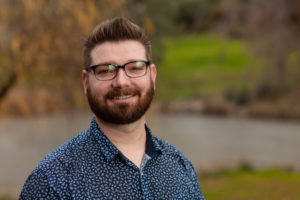
Professor Justin Chalker ($405,186) is investigating the mechanism of an unexpected reaction of trisulfides with common amide-containing solvents (such as dimethylformamide) discovered to cleave S-S bonds in trisulfides and related polysulfides.
Generating new knowledge on the use of this chemistry in polymer synthesis and polymer recycling, this project will support new strategies in polymer synthesis and recycling to benefit the environment.
with co-investigators: Dr Zhongfan Jia and Dr Thomas Hasel.
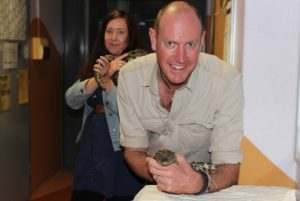
Professor Michael Gardner ($551,771) is understanding the interaction between classic pair bonding neutral circuits, parasites, and the immune system in sleepy lizards.
Revealing the mechanistic basis of pair bonding by identifying the brain regions, cell types and neurochemicals that promote pair bonding behaviour – for the first time in a wild animal. This project should provide significant benefits by increasing our knowledge of how pair bonds promote wellness.
Other lead investigators: Assistant Professor Lauren O’Connell, Professor Andrew Sih, Professor Robert Miller, Dr Stephanie Godfrey and Dr Terry Bertozzi.
Associate Professor Caitlin Hughes ($374,586) is tackling one of the leading drug policy and organised crime issues in Australia, the increased availability of crystal methamphetamine (ice) in rural and regional communities.
The first study of its kind nationally, it will use an innovative combination of qualitative and quantitative methods across six communities in three states to uncover how ice infiltrates regional communities, the drivers and mechanisms and impacts thereof.
Other investigators: Professor Mark Halsey, Professor Andrew Goldsmith and Professor Jacqueline Bowden.
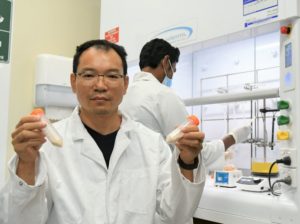
Dr Zhongfan Jia ($389,349) is addressing the current bottleneck of energy storage capability in polymers by developing new compact structures through programmed polymer folding.
Understanding how structures determine electrochemistry properties by creating densely packed redox-active polymers to break the limits of charge transfer rates and storage ability. This project should provide significant benefit in new knowledge and support advanced manufacturing using our high value-added materials.
Other investigators: Professor Kenichi Oyaizu and Professor Jodie Lutkenhaus.
Associate Professor Rob Manwaring ($366,509) is examining how Associated Entities (AEs) interact with Australian democracy by investigating their impact on elections, the law, and party system dynamics.
Generating new knowledge about the impact of these nearly 200 key political actors, with a particular focus on how they are able to elude significant scrutiny of their activities.
Co-investigator: Dr Narelle Miragliotta.

Professor Gerry Redmond ($386,000) is examining opportunities for young people with disability and young carers aged 12-24 with the contributions they make to communities and society.
Providing new knowledge on how government policy can support access to opportunities and contributions for young people with disability and young carers, involved as co-researchers, so they can reach their full potential.
Investigators: Professor Sally Robinson, Professor Joanne Arciuli and Professor Eric Emerson.
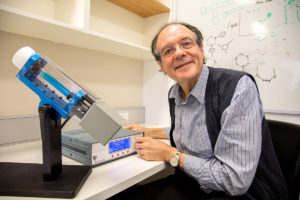
Professor Colin Raston ($590,136) is developing new knowledge on complex vortex fluid fields, their intricate interactions with external electric and magnetic fields and carbon nanostructure formation.
Reforming nanocarbon with tuneable properties and unprecedented hetero- structures to create new processes and products for advanced manufacturing.
Investigators: Professor Qin Li and Dr Elsa Antunes.
Professor Damien Riggs ($175,410) is investigating the experiences of vicarious trauma in Australian foster care.
Establishing national data about vicarious trauma to provide a clear means for assessment and the development of a mobile app enabling Australian foster families to monitor and report experiences.
Investigators: Associate Professor Clemence, Dr Ben Lohmeyer and Associate Professor Yvonne Clark.
Dr Erin Sebo ($122,540) is producing the first comprehensive study of attitudes in the earliest English literature.
Generating new knowledge about the first English speakers, what issues mattered most to them and how broad the range of attitudes was to develop our understanding of the past and how it shapes attitudes in contemporary Australia.
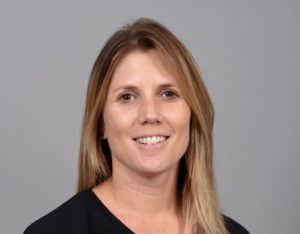
Associate Professor Melanie Takarangi ($305,304) is investigating one of society’s most invisible ‘frontline’ trauma workforces—the online content moderators responsible for limiting the public’s exposure to distressing and sensitive content on social media.
Using a series of rigorous experiments, and cutting-edge psychological and physiological assessment techniques, the research will advance our understanding of the impact of indirect trauma on mental health. This will provide significant global benefits to people with indirect trauma experiences, such as defence and forensic personnel.
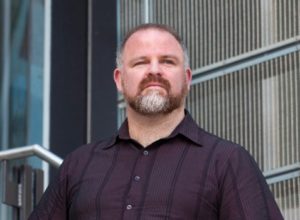
Associate Professor Ben Wadham ($490,170) is investigating the historical and social dimensions of veteran suicide.
Addressing veteran suicide by conducting an historical and cultural analysis of the way’s government, the military and the community have understood, governed, and serviced veterans from 1914-present.
It will develop an innovative survey that will form the foundation of a longitudinal social health and wellbeing dataset on veterans and contribute to policy and service provision to reduce veteran suicide and improve their wellbeing.
In addition to the Flinders-led grants, Flinders University researchers Professor Sharon Lawn, Professor Mike Lee, Dr Alice Clement, Dr Rong Zhu, Professor Karin Nordstrom, Professor Gunther Andersson, Associate Professor Luke Selth, Professor David Lynn, Professor Robert Phiddian and Dr Erin Sebo are collaborating with colleagues on a range of national projects.
Applications for Discovery Projects for funding commencing in 2024 are now open in the Research Management System and will close at 5 pm (AEDT) on Wednesday, 8 March 2023.

